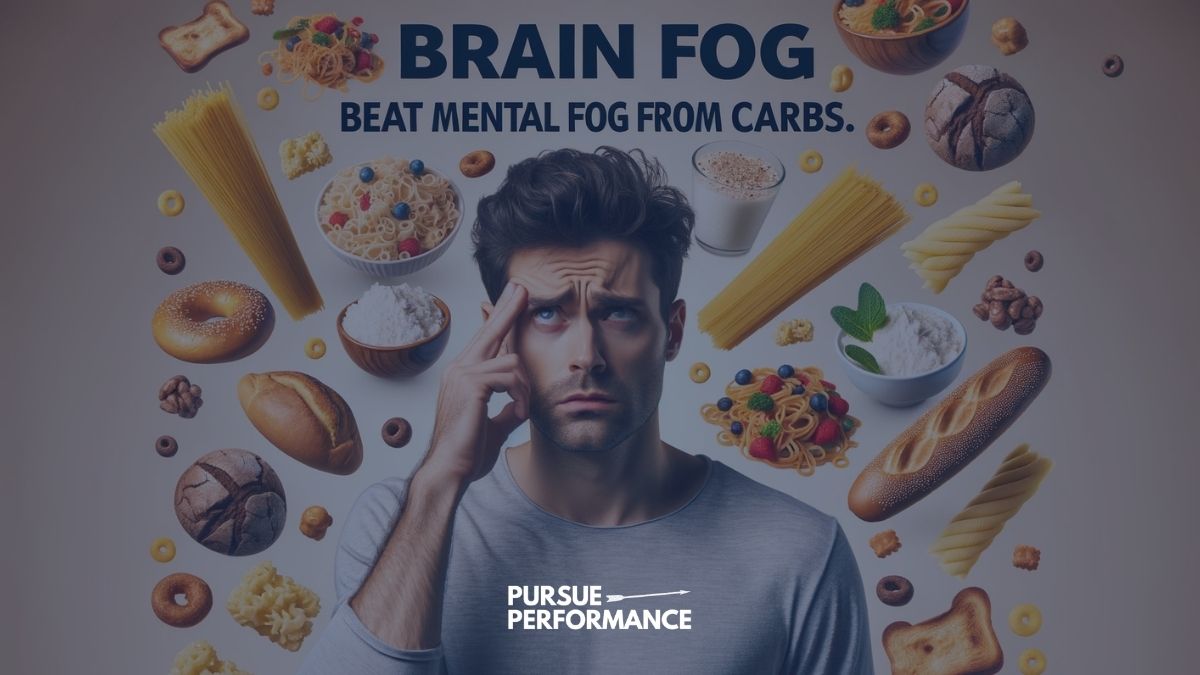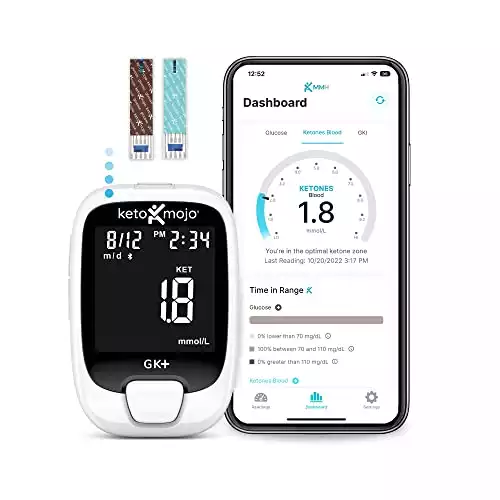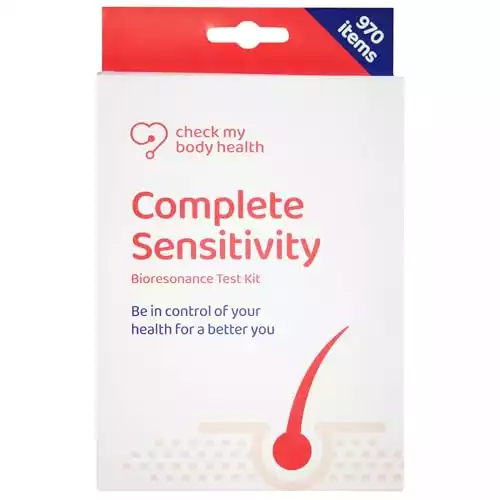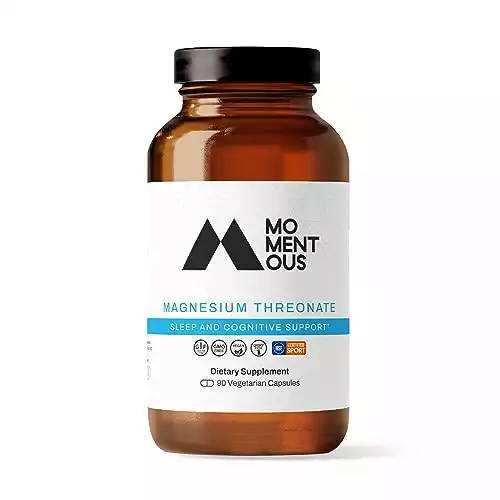Brain fog can often be linked to carbohydrate intake.
Understanding the relationship between what we eat, specifically carbs, and how our brains function can help you make better dietary choices today to maintain mental sharpness in the long run.
In this post, we will cover the connection between carbohydrates and brain fog, potential culprits, and how to beat brain fog from carbs.
Let’s dive in!
Top Picks
Test Kits:
Blood Sugar Monitor: KETO-MOJO GK+
Gut Health Test Kit: Viome at-Home
Food Sensitivity Test: Check My Body Health
Supplements:
B Complex: Nature’s Bounty Super B Complex
Magnesium Threonate: Momentous Huberman Stack
Understanding the Carb-Brain Fog Connection
Carbohydrates, particularly those rich in sugar or highly processed, can play a pivotal role in brain health and function.
But we need to be smart about carbs!
The consumption of these types of carbs can impact blood sugar levels, trigger inflammation, and affect gut health, all of which are closely linked to the phenomenon of brain fog.
Related: Take Our Free 5-Minute Brain Fog Test
Blood Sugar Levels and Brain Function

High Blood Sugar: Foods high in carbohydrates can rapidly increase blood sugar levels. This rise and subsequent drop in blood sugar, often termed a “sugar crash,” can manifest as temporary cognitive impairments.
Individuals might experience a noticeable decrease in mental clarity, difficulty concentrating, and issues with memory retention following a high-carb meal.
The American Journal of Clinical Nutrition has highlighted how high-glycemic meals could result in not only significant changes in blood sugar but also impairments in performing cognitive tasks.
Low Blood Sugar: Conversely, low blood sugar levels, which may stem from fasting or insufficient calorie intake, are equally capable of affecting brain function.
Symptoms often include confusion, an inability to concentrate, and forgetfulness.
Related: Mr. Happy Stack: A Complete Guide
The brain’s need for a continuous supply of glucose is critical; a reduction in cerebral glucose metabolism, as seen in hypoglycemia, substantially impacts cognitive functions.
Inflammation and Brain Health
The consumption of sugar and processed carbs can lead to increased bodily inflammation.
This chronic state of inflammation is often linked to various cognitive impairments and can manifest as fatigue, difficulty concentrating, and the general sensation of brain fog.
Neurological research points to how dietary-induced inflammation can directly impact cognitive abilities, affirming the ties between diet, inflammation, and overall brain health.
Gut Health and Mental Clarity
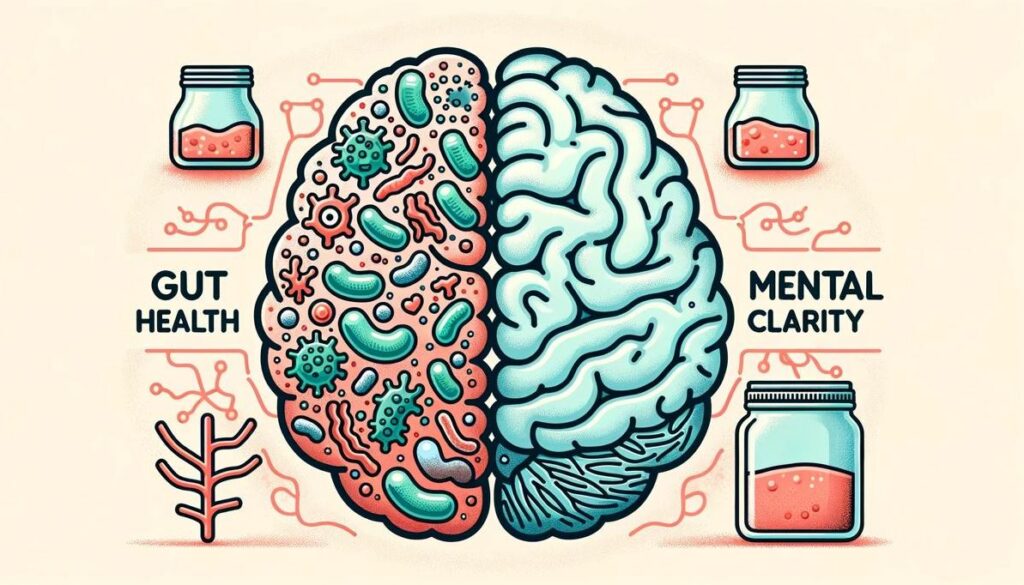
The gut-brain axis, the complex communication network between the gut and the brain, reveals how gut health significantly influences brain function.
An imbalance in the gut’s microbial environment or conditions like Small Intestinal Bacterial Overgrowth (SIBO) can have profound effects.
In cases of SIBO, for instance, excessive production of D-Lactic acid, a byproduct of bacterial fermentation, has been implicated in brain fog symptoms.
Clinical observations have shown that addressing gut health issues such as SIBO not only improves gastrointestinal symptoms but also plays a crucial role in clearing brain fog, further illustrating the importance of gut health in maintaining cognitive clarity.
Individual Responses to Carbohydrates
Each person’s body reacts differently to carbohydrates, influenced by food sensitivities, allergies, and individual gut microbiota.
- Check for 970 Different Intolerances
- Easy to Use Home Hair Strand Testing Kit
- Results in 5 Days
For instance, individuals with gluten intolerance or celiac disease may experience severe brain fog after consuming foods containing gluten.
Potential Culprits
- Gluten and Sugar: These can cause brain fog in sensitive individuals. Packaged foods often contain hidden gluten and sugars that exacerbate symptoms.
- Whole Grains and Legumes: For some, even whole grains and legumes can lead to brain fog, possibly due to their composition or the body’s reaction to specific compounds in these foods.
Strategies to Beat Brain Fog from Carbs

Tackling brain fog involves a multi-faceted approach, focusing on diet, individual eating habits, identifying underlying issues, and ensuring adequate nutrient intake.
| Strategy | Action Items | Benefits |
|---|---|---|
| Dietary Adjustments | Reduce sugars & processed carbs; Increase fiber intake | Stabilizes blood sugar; reduces spikes |
| Tailored Eating Habits | Adjust carb type & intake; Experiment with meal timing | Personalized approach for optimal functioning |
| Investigating Causes | Food sensitivity testing; Gut health checks | Identifies & addresses underlying issues |
| Supplements & Nutrients | B Vitamins; Magnesium & Potassium | Supports carb metabolism; maintains energy levels |
Related: The 9 Best Supplements for Brain Fog of 2023
Dietary Adjustments
Reduce Simple Sugars and Processed Carbs: A straightforward strategy is to reduce intake of refined sugars and processed carbohydrates.
These types of foods can cause rapid fluctuations in blood sugar levels, exacerbating brain fog.
For example, opting for a piece of fruit instead of a candy bar not only provides sugar for energy but also includes fiber and other nutrients that help moderate blood sugar increases.
Incorporate Fiber-Rich Foods: Fiber slows the absorption of sugar into the bloodstream, helping to stabilize blood sugar levels and reduce the incidence of spikes and crashes that contribute to brain fog.
High-fiber foods like vegetables, whole grains, and legumes should be staples in your diet.
Tailored Eating Habits
Personalized Carb Intake: Everyone’s body reacts differently to carbohydrates.
Some individuals may find that they feel more alert and focused on a lower-carbohydrate diet, such as a ketogenic diet, while others may need more carbs to maintain their energy and cognitive function.
If you’re anything like us, it’s worth experimenting with different levels of carb intake to find what works best for you.
Meal Timing: Adjusting when and how much carbohydrates you eat can also play a role in managing brain fog
For instance, if you notice a mental slump after lunch, a lighter meal with fewer carbs might help maintain your focus throughout the afternoon.
Investigating Underlying Causes
Food Sensitivity Testing: For some, specific foods can trigger brain fog.
Conducting food sensitivity or allergy tests can help identify these triggers so they can be avoided.
- Check for 970 Different Intolerances
- Easy to Use Home Hair Strand Testing Kit
- Results in 5 Days
Gut Health Checks: Considering the gut-brain axis, problems in gut health like SIBO, dysbiosis, or even irritable bowel syndrome (IBS) can impact brain function.
Diagnostic tools like GI Map tests or even gastroscopy can help identify and address these underlying gut issues.
Supplements and Nutrients
B Vitamins: Essential for energy production and carbohydrate metabolism, B vitamins, especially B1 (thiamine) and Biotin, can be beneficial. These vitamins are particularly crucial for those who consume high amounts of carbs or have dietary restrictions.
- Aids in converting food into energy
- Essential for neurotransmitter synthesis
- Can help regulate mood
Magnesium and Potassium: As cofactors for several enzymes in carbohydrate metabolism, these minerals are essential for overall health and managing brain fog.
They aid in converting carbs into usable energy and help regulate nerve and muscle function, including brain activity.
- Supports healthy sleep and recovery
- Better absorption vs. other forms of magnesium
- Developed in collaboration with Huberman Lab
FAQs
Can specific diets reduce brain fog caused by carbohydrates?
Yes, some people find that specific diets like a low-carb, ketogenic, or gluten-free diet can help reduce brain fog. It’s essential to experiment and listen to your body to find what diet works best for you.
Are there tests to identify if carbs cause brain fog?
Yes, you can undergo food sensitivity and allergy testing, along with tests like a GI Map or blood sugar monitoring, to determine if carbohydrate intake is contributing to brain fog.
Could brain fog from carbs indicate a more severe health issue?
While brain fog from carbs is usually a dietary issue, it can sometimes indicate deeper problems like insulin resistance, prediabetes, or neurological conditions. It’s crucial to consult with a healthcare professional if brain fog persists.
Are there any quick remedies to clear carb-induced brain fog?
Immediate strategies include a short walk or mild exercise to stabilize blood sugar levels, drinking water, and consuming a balanced meal with protein, healthy fats, and fiber.
How does fiber intake influence carb-induced brain fog?
Fiber helps slow down the absorption of sugar into the bloodstream, reducing the rapid spikes in blood sugar that can contribute to brain fog. Including high-fiber foods in your diet can help mitigate the effects of carbohydrate-induced brain fog.

